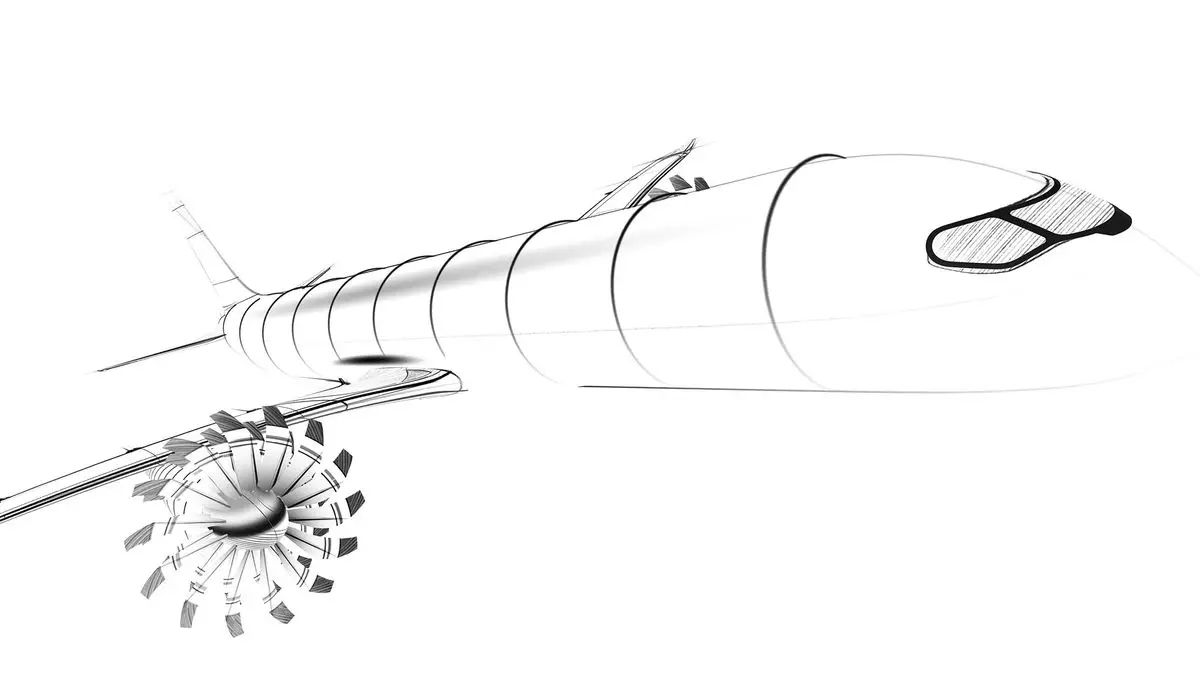Airbus is embarking on a transformative journey, with ambitious plans for a new single-aisle aircraft that promises to redefine the standards of fuel efficiency. Set to debut in the latter half of the 2030s, this innovative aircraft aims to deliver enhancements of 20% to 30% in fuel consumption. This leap forward is not just about sleek designs or increased passenger comfort; it represents a crucial step towards sustainable aviation amid the global push for net-zero emissions by 2050, as mandated by international frameworks. In a world where climate concerns are paramount, Airbus stands at the precipice of aviation’s green revolution.
Innovative Technologies Leading the Charge
At the heart of Airbus’s ambitious vision lies a commitment to pioneering new technologies that focus on minimizing environmental impact. The company has initiated research into advanced engine designs, particularly an open fan-propulsion system. This revolutionary concept stands in stark contrast to the efficient yet bulky turbofan engines that have dominated modern aviation. By eliminating the constraints of enclosed designs, engineers are exploring the possibilities of enhancing engine performance through larger fans, thus maximizing thrust and minimizing drag. The collaborative efforts between Airbus and CFM International have entered the testing phase, with plans for a remarkable open fan engine test flight scheduled for an A380 jumbo jet by the end of this decade.
The Quest for Aerodynamic Excellence
In addition to rethinking engine mechanics, Airbus is redefining wing design, drawing inspiration from nature’s finest flyers, such as the albatross. The company’s Wing of Tomorrow program is delving into ambitious testing and development of folding wing designs, enabling longer, more slender wings that reduce drag while enhancing lift. This innovative approach could significantly enhance the aircraft’s overall efficiency, yet it faces practical challenges. With the vast majority of airport gates across the globe not accommodating such expansive wingspans, Airbus’s calculations extend beyond pure performance. The development of multiple wing demonstrators, each designed with advanced folding mechanisms, underscores a dual aim: improving aerodynamics while ensuring compatibility with existing airport infrastructures.
Materials Matter: Built for Tomorrow
The drive for enhanced fuel efficiency doesn’t stop at aerodynamics and propulsion. Airbus is simultaneously scrutinizing materials employed in aircraft construction. The quest for lighter, stronger components is key to reducing overall aircraft weight, thereby contributing positively to fuel economy. The utilization of smart materials, which leverage innovative engineering practices, could become a cornerstone of tomorrow’s aircraft design ethos. With not just the engine and wings under reconsideration, the entire airframe could witness dramatic shifts in design philosophy, allowing for an aviation fleet that meets the rigorous demands of efficiency alongside growing environmental standards.
Integrating Electric Energy: A Paradigm Shift
While the centerpiece of Airbus’s green ambitions focuses heavily on design overhauls, the incorporation of hybrid-electric propulsion systems signals a considerable paradigm shift in aviation. Although these systems will not serve as a primary means of thrust, they introduce a clean alternative for various aircraft functions such as lighting, air conditioning, and ground movement. In December, Airbus undertook a demonstration flight with hybrid-electric technology in collaboration with aerospace partners Safran and Daher, marking a noteworthy milestone in the integration of battery power into contemporary aviation. This exploration could very well be the first step toward a future characterized by lower emissions and an overall reduced carbon footprint.
A Collective Responsibility Towards Sustainability
As Airbus paves the road to next-generation aircraft, one thing is clear: fostering collaboration within the aviation community is essential. The challenges of achieving sustainable aviation are monumental and cannot be tackled by any one entity alone. Manufacturers, governments, and researchers must align their efforts to prioritize innovation in both technology and regulation. The ambitious goals set forth by Airbus not only challenge the status quo but serve as a call-to-action for the entire industry to rally around a shared vision of environmental stewardship. In this race toward sustainability, the stakes are high, and the aviation world will be watching to see if Airbus can transform its grand vision into a tangible reality.


Leave a Reply